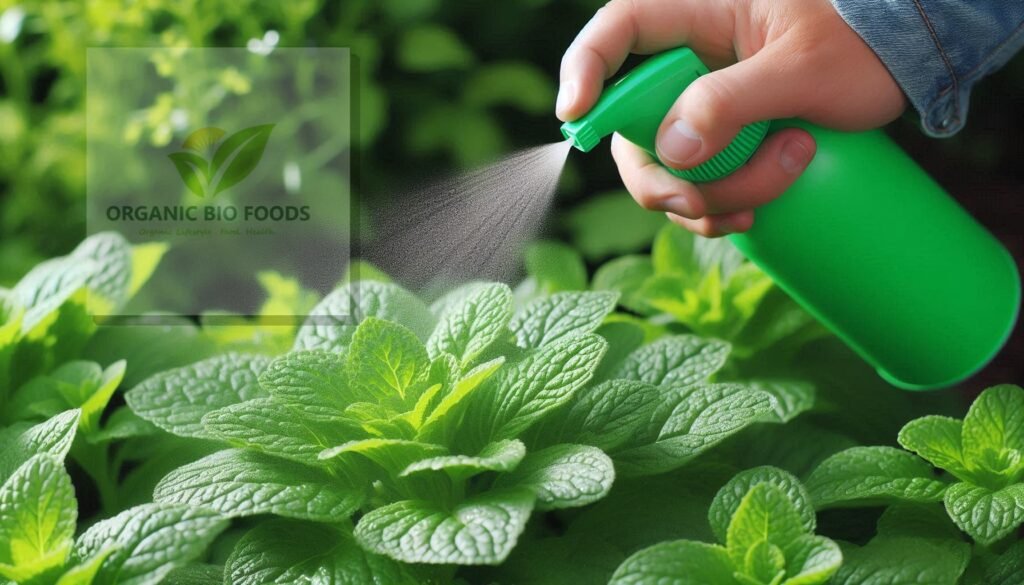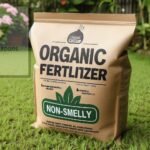Maintaining a thriving organic farm requires not only a commitment to sustainable practices but also effective strategies for managing pests. Unlike conventional farms, organic farms rely on natural methods to protect crops from harmful insects and diseases. Using organic pesticides is a key part of this approach, ensuring that crops remain healthy without compromising the integrity of the soil or the environment. We have put together three of the most effective organic pesticides you can use to keep your organic farm or garden pest-free.
1. Neem Oil
Neem oil is one of the most popular and versatile organic pesticides available. Extracted from the seeds of the neem tree (Azadirachta indica), this natural oil has been used for centuries in traditional farming practices for its potent insecticidal and antifungal properties.
Why Neem Oil is Effective:
- Broad-Spectrum Control: Neem oil is effective against a wide range of pests, including aphids, whiteflies, spider mites, and caterpillars. It works by disrupting the life cycle of insects, preventing them from feeding, breeding, or growing.
- Safe for Beneficial Insects: Unlike synthetic pesticides, neem oil is non-toxic to beneficial insects like bees, ladybugs, and butterflies when used correctly. This makes it an excellent choice for organic farms that rely on pollinators and natural predators for crop health.
- Antifungal Properties: In addition to its insecticidal properties, neem oil also helps control fungal infections such as powdery mildew, rust, and black spot, making it a versatile tool in your pest management arsenal.
How to Use Neem Oil:
Neem oil can be applied as a foliar spray or soil drench. For best results, mix 1-2 tablespoons of neem oil with a gallon of water and a few drops of liquid soap to help the oil mix with the water. Spray the solution on affected plants early in the morning or late in the evening to avoid direct sunlight, which can cause leaf burn. Repeat the application every 7-14 days until the pests are under control.
2. Diatomaceous Earth
Diatomaceous earth (DE) is a natural powder made from the fossilized remains of tiny aquatic organisms called diatoms. This fine, abrasive powder is a powerful and non-toxic pesticide that is safe for organic farming.
Why Diatomaceous Earth is Effective:
- Physical Mode of Action: Diatomaceous earth works by physically damaging the exoskeletons of insects, causing them to dehydrate and die. This makes it effective against a wide range of crawling insects, including ants, slugs, beetles, and fleas.
- Non-Toxic and Safe: DE is safe for humans, animals, and the environment, making it an ideal choice for organic farmers. It does not harm beneficial insects unless they come into direct contact with it, which is less likely when applied carefully.
- Long-Lasting Protection: Unlike liquid pesticides, diatomaceous earth remains effective as long as it stays dry. This provides long-lasting protection against pests without the need for frequent reapplication.
How to Use Diatomaceous Earth:
To use diatomaceous earth, simply dust a thin layer of the powder around the base of your plants, on the leaves, or in areas where pests are commonly found. Reapply after rain or heavy dew, as moisture reduces its effectiveness. For added protection, you can mix DE with water and apply it as a slurry, which will dry into a protective layer on plant surfaces.
3. Insecticidal Soap
Insecticidal soap is a highly effective organic pesticide made from potassium salts of fatty acids. It works by breaking down the outer cell membranes of soft-bodied insects, causing them to dehydrate and die. This makes it a go-to solution for controlling pests on an organic farm.
Why Insecticidal Soap is Effective:
- Targets Soft-Bodied Insects: Insecticidal soap is particularly effective against soft-bodied pests such as aphids, mealybugs, spider mites, and whiteflies. It works on contact, providing quick and visible results.
- Safe for Plants and Beneficial Insects: When used as directed, insecticidal soap is safe for most plants and does not harm beneficial insects like bees and ladybugs. It also breaks down quickly, leaving no harmful residues on your crops.
- Easy to Use and Affordable: Insecticidal soap is easy to apply and is often available at an affordable price. It can also be made at home using simple ingredients, making it an accessible option for organic farmers.
How to Use Insecticidal Soap:
To use insecticidal soap, spray it directly onto the affected plants, ensuring that you cover both the tops and undersides of the leaves where pests often hide. For homemade solutions, mix 1-2 tablespoons of mild liquid soap with a quart of water. Apply in the early morning or late evening to avoid leaf burn. Repeat the application every 5-7 days until the infestation is under control.
Remember, the key to successful pest management in organic farming is consistency and prevention. Regularly inspect your plants for signs of pest activity, use organic pesticides as needed, and always follow recommended application guidelines to ensure the health and vitality of your crops.








